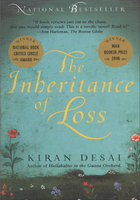Those whom the hurricane had just thrown on this coast were neither aeronauts by profession nor amateurs. They were prisoners of war whose boldness had induced them to escape in this extraordinary manner.
A hundred times they had almost perished! A hundred times had they almost fallen from their torn balloon into the depths of the ocean. But Heaven had reserved them for a strange destiny, and after having, on the 20th of March, escaped from Richmond, besieged by the troops of General Ulysses Grant, they found themselves seven thousand miles from the capital of Virginia, which was the principal stronghold of the South, during the terrible War of Secession. Their aerial voyage had lasted five days.
The curious circumstances which led to the escape of the prisoners were as follows:
That same year, in the month of February, 1865, in one of the coups de main by which General Grant attempted, though in vain, to possess himself of Richmond, several of his officers fell into the power of the enemy and were detained in the town. One of the most distinguished was Captain Cyrus Harding. He was a native of Massachusetts, a first-class engineer, to whom the government had confided, during the war, the direction of the railways, which were so important at that time. A true Northerner, thin, bony, lean, about forty-five years of age; his close-cut hair and his beard, of which he only kept a thick mustache, were already getting gray. He had one-of those finely-developed heads which appear made to be struck on a medal, piercing eyes, a serious mouth, the physiognomy of a clever man of the military school. He was one of those engineers who began by handling the hammer and pickaxe, like generals who first act as common soldiers. Besides mental power, he also possessed great manual dexterity. His muscles exhibited remarkable proofs of tenacity. A man of action as well as a man of thought, all he did was without effort to one of his vigorous and sanguine temperament. Learned, clear-headed, and practical, he fulfilled in all emergencies those three conditions which united ought to insure human success activity of mind and body, impetuous wishes, and powerful will. He might have taken for his motto that of William of Orange in the 17th century: "I can undertake and persevere even without hope of success." Cyrus Harding was courage personified. He had been in all the battles of that war. After having begun as a volunteer at Illinois, under Ulysses Grant, he fought at Paducah, Belmont, Pittsburg Landing, at the siege of Corinth, Port Gibson, Black River, Chattanooga, the Wilderness, on the Potomac, everywhere and valiantly, a soldier worthy of the general who said, "I never count my dead!" And hundreds of times Captain Harding had almost been among those who were not counted by the terrible Grant; but in these combats where he never spared himself, fortune favored him till the moment when he was wounded and taken prisoner on the field of battle near Richmond. At the same time and on the same day another important personage fell into the hands of the Southerners. This was no other than Gideon Spilen, a reporter for the New York Herald, who had been ordered to follow the changes of the war in the midst of the Northern armies. Gideon Spilett was one of that race of indomitable English or American chroniclers, like Stanley and others, who stop at nothing to obtain exact information, and transmit it to their journal in the shortest possible time. The newspapers of the Union, such as the New York Herald, are genuine powers, and their reporters are men to be reckoned with. Gideon Spilett ranked among the first those reporters: a man of great merit, energetic, prompt and ready for anything, full of ideas, having traveled over the whole world, soldier and artist, enthusiastic in council, resolute in caring neither for trouble, fatigue, nor danger, when in pursuit of information, for himself first,then for his journal, a perfect treasury of knowledge on all sorts of curious subjects, of the unpublished, of the unknown, and of the impossible. He was one of those intrepid observers who write under fire, "reporting" among bullets, and to whom every danger is welcome.
He also had been in all the battles, in the first rank, revolver in one hand, note-book in the other; grape-shot never made his pencil tremble. He did not fatigue the wires with incessant telegrams, like those who speak when they have nothing to say, but each of his notes, short, decisive, and clear, threw light on some important point. Besides, he was not wanting in humor. It was he who, after the affair of the Black River, determined at any cost to keep his place at the wicket of the telegraph office, and after having announced to his journal the result of the battle, telegraphed for two hours the first chapters of the Bible. It cost the New York Herald two thousand dollars, but the New York Herald published the first intelligence.
Gideon Spilett was tall. He was rather more than forty years of age. Light whiskers bordering on red surrounded his face. His eye was steady, lively, rapid in its changes. It was the eye of a man accustomed to take in at a glance all the details of a scene. Well built, he was inured to all climates, like a bar of steel hardened in cold water.
For ten years Gideon Spilett had been the reporter of the New York Herald, which he enriched by his letters and drawings, for he was as skilful in the use of the pencil as of the pen. When be was captured, he was in the act of making a description and sketch of the battle. The last words in his note-book were these: "A Southern rifleman has just taken aim at me, but " The Southerner notwithstanding missed Gideon Spilett, who, with his usual fortune, came out of this affair without a scratch.
Cyrus Harding and Gideon Spilett, who did not know each other except by reputation, had both been carried to Richmond. The engineer's wounds rapidly healed, and it was during his convalescence that he made acquaintance with the reporter. The two men then learned to appreciate each other. Soon their common aim had but one object, that of escaping, rejoining Grant's army, and fighting together in the ranks of the Federals.
The two Americans had from the first determined to seize every chance; but although they were allowed to wander at liberty in the town, Richmond was so strictly guarded, that escape appeared impossible. In the meanwhile Captain Harding was rejoined by a servant who was devoted to him in life and in death. This intrepid fellow was a Negro born on the engineer's estate, of a slave father and mother, but to whom Cyrus, who was an Abolitionist from conviction and heart, had long since given his freedom. The once slave, though free, would not leave his master. He would have died for him. He was a man of about thirty, vigorous, active, clever, intelligent, gentle, and calm, sometimes naive, always merry, obliging, and honest. His name was Nebuchadnezzar, but he only answered to the familiar abbreviation of Neb.
When Neb heard that his master had been made prisoner, he left Massachusetts without hesitating an instant, arrived before Richmond, and by dint of stratagem and shrewdness, after having risked his life twenty times over, managed to penetrate into the besieged town. The pleasure of Harding on seeing his servant, and the joy of Neb at finding his master, can scarcely be described.
But though Neb had been able to make his way into Richmond, it was quite another thing to
out again, for the Northern prisoners were very strictly watched. Some extraordinary opportunity was needed to make the attempt with any chance of success, and this opportunity not only did not present itself, but was very difficult to find.
Meanwhile Grant continued his energetic operations. The victory of Petersburg had been very dearly bought. His forces, united to those of Butler, had as yet been unsuccessful before Richmond, and nothing gave the prisoners any hope of a speedy deliverance.
The reporter, to whom his tedious captivity did not offer a single incident worthy of note, could stand it no longer. His usually active mind was occupied with one sole thought how he might get out of Richmond at any cost. Several times had he even made the attempt, but was stopped by some insurmountable obstacle. However, the siege continued; and if the prisoners were anxious to escape and join Grant's army, certain of the besieged were no less anxious to join the Southern forces. Among them was one Jonathan Forster, a determined Southerner. The truth was, that if the prisoners of the Secessionists could not leave the town, neither could the Secessionists themselves while the Northern army invested it. The Governor of Richmond for a long time had been unable to communicate with General Lee, and he very much wished to make known to him the situation of the town, so as to hasten the march of the army to their relief. Thus Jonathan Forster accordingly conceived the idea of rising in a balloon, so as to pass over the besieging lines, and in that way reach the Secessionist camp.
The Governor authorized the attempt. A balloon was manufactured and placed at the disposal of Forster, who was to be accompanied by five other persons. They were furnished with arms in case they might have to defend themselves when they alighted, and provisions in the event of their aerial voyage being prolonged.
The departure of the balloon was fixed for the 18th of March. It should be effected during the night, with a northwest wind of moderate force, and the aeronauts calculated that they would reach General Lee's camp in a few hours.
But this northwest wind was not a simple breeze. From the 18th it was evident that it was changing to a hurricane. The tempest soon became such that Forster's departure was deferred, for it was impossible to risk the balloon and those whom it carried in the midst of the furious elements.
The balloon, inflated on the great square of Richmond, was ready to depart on the first abatement of the wind, and, as may be supposed, the impatience among the besieged to see the storm moderate was very great.
The 18th, the 19th of March passed without any alteration in the weather. There was even great difficulty in keeping the balloon fastened to the ground, as the squalls dashed it furiously about. The night of the 19th passed, but the next morning the storm blew with redoubled force. The departure of the balloon was impossible.
On that day the engineer, Cyrus Harding, was accosted in one of the streets of Richmond by a person whom he did not in the least know. This was a sailor named Pencroft, a man of about thirty-five or forty years of age, strongly built, very sunburnt, and possessed of a pair of bright sparkling eyes and a remarkably good physiognomy. Pencroft was an American from the North, who had sailed all the ocean over, and who had gone through every possible and almost impossible adventure that a being with two feet and no wings would encounter. It is needless to say that was a bold, dashing fellow, ready to dare anything and was astonished at nothing. Pencroft at beginning of the year had gone to Richmond on business, with a young boy of fifteen from New Jersey, son of a former captain, an orphan, whom he loved as if he had been his own child. Not having been able to leave the town before the first operations of the siege, he found himself shut up, to his great disgust; but, not accustomed to succumb to difficulties, he resolved to escape by some means or other. He knew the engineer-officer by reputation; he knew with what impatience that determined man chafed under his restraint. On this day he did not, therefore, hesitate to accost him, saying, without circumlocution, "Have you had enough of Richmond, captain?"
The engineer looked fixedly at the man who spoke, and who added, in a low voice, "Captain Harding, will you try to escape?"
"When?" asked the engineer quickly, and it was evident that this question was uttered without consideration, for he had not yet examined the stranger who addressed him. But after having with a penetrating eye observed the open face of the sailor, he was convinced that he had before him an honest man.
"Who are you?" he asked briefly. Pencroft made himself known.
"Well," replied Harding, "and in what way do you propose to escape?"
"By that lazy balloon which is left there doing nothing, and which looks to me as if it was waiting on purpose for us. "
There was no necessity for the sailor to finish his sentence. The engineer understood him at once. He seized Pencroft by the arm, and dragged him to his house. There the sailor developed his project, which was indeed extremely simple. They risked nothing but their lives in its execution. The hurricane was in all its violence, it is true, but so clever and daring an engineer as Cyrus Harding knew perfectly well how to manage a balloon. Had he himself been as well acquainted with the art of sailing in the air as he was with the navigation of a ship, Pencroft would not have hesitated to set out, of course taking his young friend Herbert with him; for, accustomed to brave the fiercest tempests of the ocean, he was not to be hindered on account of the hurricane. Captain Harding had listened to the sailor without saying a word, but his eyes shone with satisfaction. Here was the long-sought-for opportunity he was not a man to let it pass. The plan was feasible, though, it must be confessed, dangerous in the extreme. In the night, in spite of their guards, they might approach the balloon, slip into the car, and then cut the cords which held it. There was no doubt that they might be killed, but on the other hand they might succeed, and without this storm! Without this storm the balloon would have started already and the looked-for opportunity would not have then presented itself.
"I am not alone!" said Harding at last.
"How many people do you wish to bring with you?" asked the sailor. "Two; my friend Spilett, and my servant Neb."
"That will be three," replied Pencroft; "and with Herbert and me five. But the balloon will hold six."
"That will be enough, we will go," answered Harding in a firm voice.
This "we" included Spilett, for the reporter, as his friend well knew, was not a man to draw back, and when the project was communicated to him he approved of it unreservedly. What astonished him was, that so simple an idea had not occurred to him before. As to Neb, he followed his master wherever his master wished to go.
"This evening, then," said Pencroft, "we will all meet out there."
"This evening, at ten o'clock," replied Captain Harding; "and Heaven grant that the storm does not abate before our departure.
Pencroft took leave of the two friends, and returned to his lodging, where young Herbert Brown had remained. The courageous boy knew of the sailor's plan, and it was not without anxiety that he awaited the result of the proposal being made to the engineer. Thus five determined persons were about to abandon themselves to the mercy of the tempestuous elements!
No! the storm did not abate, and neither Jonathan Forster nor his companions dreamed of confronting it in that frail car.
It would be a terrible journey. The engineer only feared one thing; it was that the balloon, held to the ground and dashed about by the wind, would be torn into shreds. For several hours he roamed round the nearly-deserted square, surveying the apparatus. Pencroft did the same on his side, his hands in his pockets, yawning now and then like a man who did not know how to kill the time, but really dreading, like his friend, either the escape or destruction of the balloon. Evening arrived. The night was dark in the extreme. Thick mists passed like clouds close to the ground. Rain fell mingled with snow. it was very cold. A mist hung over Richmond. it seemed as if the violent storm had produced a truce between the besiegers and the besieged, and that the cannon were silenced by the louder detonations of the storm. The streets of the town were deserted. It had not even appeared necessary in that horrible weather to place a guard in the square, in the midst of which plunged the balloon. Everything favored the departure of the prisoners, but what might possibly be the termination of the hazardous voyage they contemplated in the midst of the furious elements? "Dirty weather!" exclaimed Pencroft, fixing his hat firmly on his head with a blow of his fist; "but pshaw, we shall succeed all the same!"
At half-past nine, Harding and his companions glided from different directions into the square, which the gas-lamps, extinguished by the wind, had left in total obscurity. Even the enormous balloon, almost beaten to the ground, could not be seen. Independently of the sacks of ballast, to which the cords of the net were fastened, the car was held by a strong cable passed through a ring in the pavement. The five prisoners met by the car. They had not been perceived, and such was the darkness that they could not even see each other.
Without speaking a word, Harding, Spilett, Neb, and Herbert took their places in the car, while Pencroft by the engineer's order detached successively the bags of ballast. It was the work of a few minutes only, and the sailor rejoined his companions.
The balloon was then only held by the cable, and the engineer had nothing to do but to give the word.
At that moment a dog sprang with a bound into the car. It was Top, a favorite of the engineer faithful creature, having broken his chain, had followed his master. He, however, fearing that additional weight might impede their ascent, wished to send away the animal.
"One more will make but little difference, poor beast!" exclaimed Pencroft, heaving out two bags of sand, and as he spoke letting go the cable; the balloon ascending in an oblique direction, disappeared, after having dashed the car against two chimneys, which it threw down as it swept by them.
Then, indeed, the full rage of the hurricane was exhibited to the voyagers. During the night the engineer could not dream of descending, and when day broke, even a glimpse of the earth below was intercepted by fog.
Five days had passed when a partial clearing allowed them to see the wide extending ocean beneath their feet, now lashed into the maddest fury by the gale.
Our readers will recollect what befell these five daring individuals who set out on their hazardous expedition in the balloon on the 20th of March. Five days afterwards four of them were thrown on a desert coast, seven thousand miles from their country! But one of their number was missing, the man who was to be their guide, their leading spirit, the engineer, Captain Harding! The instant they had recovered their feet, they all hurried to the beach in the hopes of rendering him assistance.















